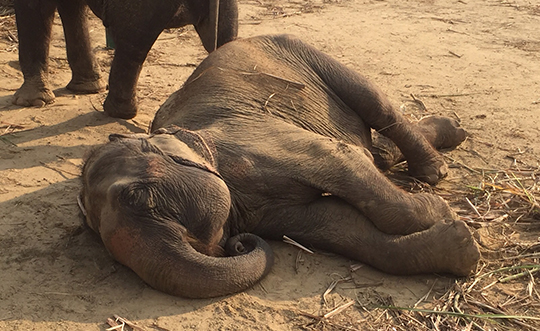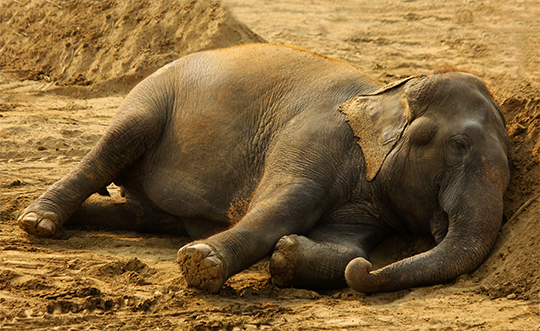Kruger National Park, Elephant in the Room, Elephant Conservation and Care Center, Priyanka, Trip Advisor, Lasah, Laxmi starved to Death, Field of Sweet Dreams Project, Mia, Zimbabwe's Elephants, Sanjay Celebrates A Year of Freedom

The Network for Animals finances canine anti-poaching patrols in South Africa’s Kruger National Park.
These amazing dogs sniff out smuggled ivory and rhino horn and track poachers when they enter the game reserve. Kruger Park is a very sunny place so the ground gets hot; the dogs can only chase the poachers so far and then their feet hurt. I had special boots made that slip easily on to the dogs’ feet, so they can run further and faster.
Brian Davies, Founder, network of Animals, just met two baby elephants whose mothers had died at the hands of poachers. If only you could have seen the way those babies reached out to me with their trunks, seeking love and security.
That’s when the true horror of this evil killing comes home to you. Click here to be a part of this effort!

LEA does not meet Lasah's basic needs, some of which are:
- To live with other elephants - he lives alone
- To sleep lying down - he's chained to the floor
- To cover himself in mud to protect himself from sunburn - he's kept clean for the tourists who don't understand why elephants need to use mud to protect themselves
- To regulate his body temperature in water - water isn't available for bathing
- To roam free - chained up when not in use
Positive reviews of rides on Lasah published by TripAdvisor legitimise this attraction and ensure a continuing market both for the tourism and the poaching that supplies elephants to tourist attractions like LEA.
TripAdvisor has been asked to remove the pages promoting the attractions featuring Lasah, but they have not listened. Please sign my petition demanding that TripAdvisor remove these pages:
The dirty secret of elephant tourism and trekking is that young elephants, usually baby girls, are first poached from their mother and herd and 'broken'. Breaking is done by chaining the baby elephant's body into a large structure so the humans can torture the elephant with instruments and pain. When the elephant is broken it can be taught what the human wants it to do to earn money for the human. Training involves more pain and torture.
The average weight that a trekking elephant carries each day all day is around half a tonne allowing for 150 kilo chair plus 4 guests. You will see permanent indentations on elephant backs where these chairs have been. Elephants live as long as humans and are often worked to death.
There is a local sanctuary called Kuala Gandah Elephant Sanctuary that will be able to have Lasah and let him enjoy a retirement if Lasah cannot be ‘wild released’ after rehabilitation.
Some background about how Lasah is being helped and how you can help:
There is mounting pressure on the local environment ministry pressure headed by Friends of the Orangutans (FOTO) Malaysia http://www.fotomalaysia.org/?p=1870
In January 2017, FOTO organised a protest in the capital of Malaysia, Kuala Lumpur, and in February, they personally handed two petitions, including a Care2 petition with over 400,000 signatures, to the head of the Peninsular Malaysia Wildlife Department and the Head of the Corporate Communications Unit at the Environment Ministry of Malaysia. Petitions were submitted to the Prime Minister’s Department in 2016. In March 2017, FOTO organised a protest in London, UK. Please sign and share this petition. Thank you.
This Elephant was Starved to Death — Demand Justice!
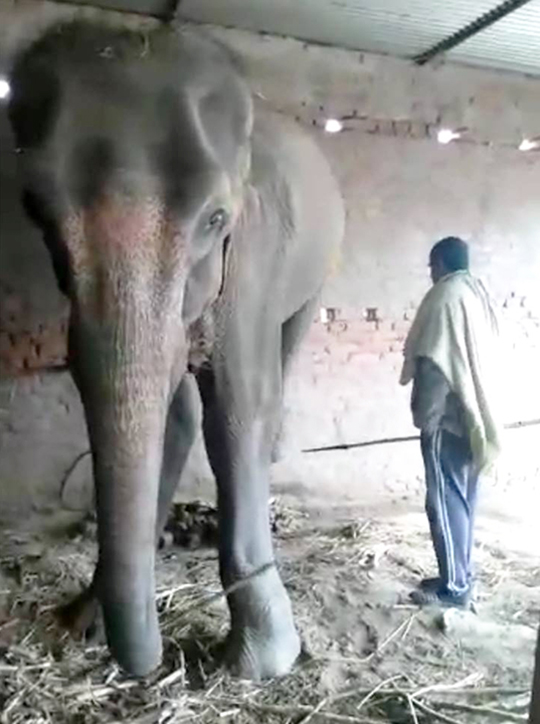
One day later, the Forest Department arrived to find that she had collapsed. We were extremely alarmed upon learning of her condition, and we scrambled to get our elephant veterinarians on a plane to Bihar to try and save her. But she’d finally given in to the agony and passed away. Her captors had fled — leaving the poor elephant to spend the final agonizing hours of her life alone.
Her name was Laxmi. Though she had been relatively young, she was weak and her bones already brittle; the veterinarians ascribed it to a degenerative skeletal or metabolic disorder, likely the result of extreme malnourishment. Laxmi had been stolen from the wild, wrenched from her mother and her herd as a baby and denied any chance at a life of freedom as a wild elephant. In the decades that followed, Laxmi was trafficked illegally across India under the guise of a traveling circus until her debilitating disease rendered her useless to her owners.
It breaks our hearts to know we could not reach her in time, but we believe that she deserves justice —even if she never saw a single day of freedom. Please let the Chief Wildlife Warden of Bihar know that illegal trafficking, neglect, and severe abuse of elephants like Laxmi is intolerable, and a precedent must be set. Demand justice for Laxmi.Click here to help!
Field of Sweet Dreams Project. We always thought “Field of Dreams” was the perfect name for our project expanding the elephant sanctuary with new land. Why? Because one of the first things a rescued elephant will do once they know they're safe…is lie down and go into a deep sleep. Just look at Mia below — this photo was taken just after she arrived. For some of our rescued elephants, it's the first time in years that they're truly able to rest on the soft earth without chains.
Mia sleeps after arriving at the sanctuary
You helped us acquire land for their Field of Dreams, and now we need to finish digging the pools, erecting the fences, and building the shelters that will let the elephants finally rest, recover, and be restored.
Asha in her own field of dreams
Our plan is to bring up to 25 elephants to this land. We've already started building the structures to make it as restful a home as it can be, but we need to expedite the process before the monsoons come. Can you help us give these once-tortured elephants sweet dreams?
Sanjay the Elephant Celebrates A Year of Freedom. February 2016 brought two fantastic surprises: a much-needed break from the chilly weather in Mathura, and — much more importantly — a new arrival at our Elephant Conservation and Care Center there. It all started with a call from the local Forest Department about a young male elephant whose owners had hacked off portions of his tusks to make a quick buck on the black market. Even though the Forest Department had taken temporary custody of the elephant, the clock was ticking: his former owners were preparing a legal case demanding the elephant to be returned. If this elephant was not moved to our sanctuary within the next 24 hours, we risked losing him into the murky underworld of illegal elephant trafficking and trade forever.
That call from the Forest Department launched what was probably our quickest rescue mission ever; within hours we’d dispatched a team to save him. We had almost no information about the tusker — not even his name — but we knew that he was being abused and exploited not only as a “work unit” for his unscrupulous owners but also as a cash source as they sawed off his ivory tusks, bit by bit. That was all the information we needed!
As we put the rescue plan into action, we also launched a fundraising campaign, and our supporters came through with an overwhelming display of compassion and generosity for the tusker. At this point he was still “the Elephant with No Name,” so we asked you (in an online poll) to help us give him a proper name. You chose “Sanjay,” which means “victorious” — a fitting tribute to his personality and to the success of his extremely challenging rescue.
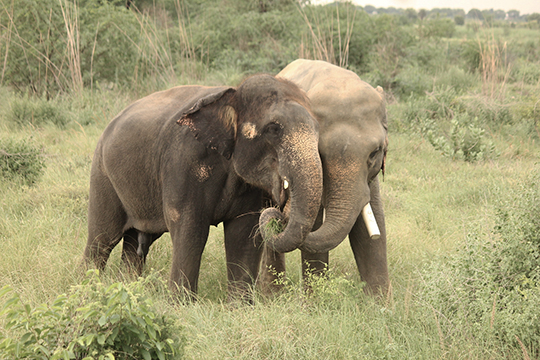
But first off was a medical checkup. Our preliminary look revealed a hairline fracture in his rear limb, which sadly postponed Sanjay’s introduction to the pool and the countryside he'd come to love. Almost 50 years of neglect in captivity had left poor Sanjay’s feet in terrible shape, with overgrown, cracked toenails and painfully swollen foot pads. So our veterinarians began treating him with routine foot care and a rich, varied diet of fodder, vegetables, and prescribed supplements. He's proven to be quite a meticulous eater, careful never to waste even the tiniest portion of food, using the tip of his trunk to gingerly scoop up tiny shoots, leaves, and other scraps that remain after his meal is complete. And, as his fracture has healed and his feet have improved, Sanjay has proven himself to be an avid hiker, hitting the sanctuary countryside for long walks as often as he can.
Even still, Sanjay recently gave us a scare when he came home from a walk with a slight limp. The vets wasted no time administering a full medical check and X-ray, and things were tense for a bit. But luckily Sanjay’s limp was simply a minor muscle cramp, and after a few days of rest and anti-inflammatory medication, our majestic bull was back to his cheerful, active self.
The incident gave us some insight into Sanjay’s personality, too: he positively loved all the attention lavished upon him after the limping incident, but was annoyed that the “rest time” kept him away from his beloved walks for two days straight. Sanjay really looks forward to those walks; he'll start getting animated about an hour before his keeper Nekpal shows up for walk time. And when he's out in the field, he just loves taking in his surroundings, excitedly sniffing and investigating every plant and object he encounters. Sanjay is a good-natured and active fellow, and can be seen hanging out with Wally and Gajraj.
Sanjay out on one of his much-loved strolls
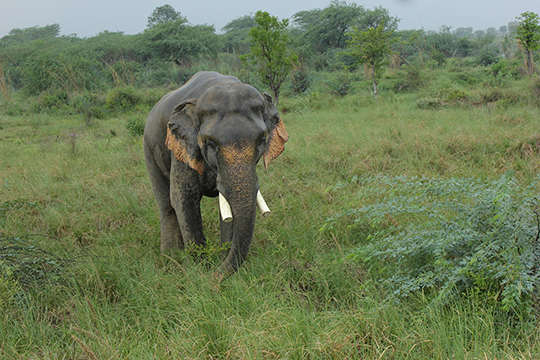
So thank you again, from our staff and from Sanjay, for making all this possible with your support. We feel truly privileged to be a part of Sanjay's recovery and rehabilitation — and we know you do, too. If you’d like to continue your support for this magnificent tusker — and receive regular updates on his progress along the way — please consider an ongoing sponsorship for his care at this link.
On behalf of Sanjay and all our rescued elephants (and bears, and leopards, and birds, so on), thank you again! Please be a part of it!
Hope Extinguished for Zimbabwe's Elephants. Animal advocates around the world raised a cheer following a surprising announcement that Zimbabwe would no longer tear young elephants from their mothers and export them to zoos. Multiple news outlets reported the news and stated that other species would also receive similar protections under the new rules. Sadly, this was not to be the case. READ MORE
